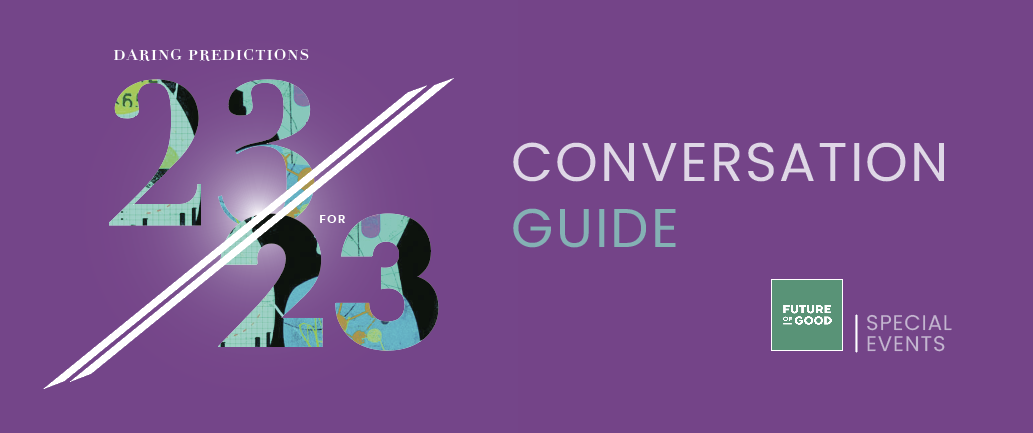
“Changemakers enter 2023 at a moment of profound challenge and change,” writes Vinod Rajasekaran, publisher and CEO of Future of Good. It’s how he starts his list of 23 predictions for the social impact world to expect through the year ahead. “While it is the best time in the history of humanity to be alive and working, the systems humans designed decades ago continue to create and exacerbate societal problems all around us, from how we work to how we govern to how we care to how we give.”
In 2023, Vinod predicts, many of these systems will break and some will stay status quo. Others still will be disrupted by growing movements of social change. Many social impact teams and organizations will be woefully unprepared for what’s on the horizon, he warns. But you don’t have to be.
Read the story here, referring to this conversation guide as you go.
____________________________________________________
Changemakers use Future of Good’s journalism and analysis to start discussions all the time — between board members, with colleagues, funders, partners, clients and community members, even with friends and family. We believe this is how social change happens: through informed conversations with people who can take action.
This guide suggests questions you could use to facilitate a conversation about Vinod’s predictions. They’re by no means the only questions you can ask — you know your colleagues or community best — but they might prompt your group to examine the predictions from different angles.
But first, here are some principles we use for conversations at Future of Good:
____________________________________________________
Future of Good is the only Canadian publication covering the social purpose world in all its nuance and complexity — from philanthropy and non-profit work to social finance and social enterprise, grassroots activism, social policy, and more. Our team of journalists report on the trends, disruptions, and stories shaping the social impact world work changemakers (like you) do every day. In 2022, we covered stories like the heated, ongoing debate on the disbursement quota (the amount of money a philanthropic foundation is required to give to charities each year), criticism of the federal government’s first-ever 2SLGBTQI+ Action Plan, the launch of a national organization to help non-profits adapt to a digital-first future, and much more.